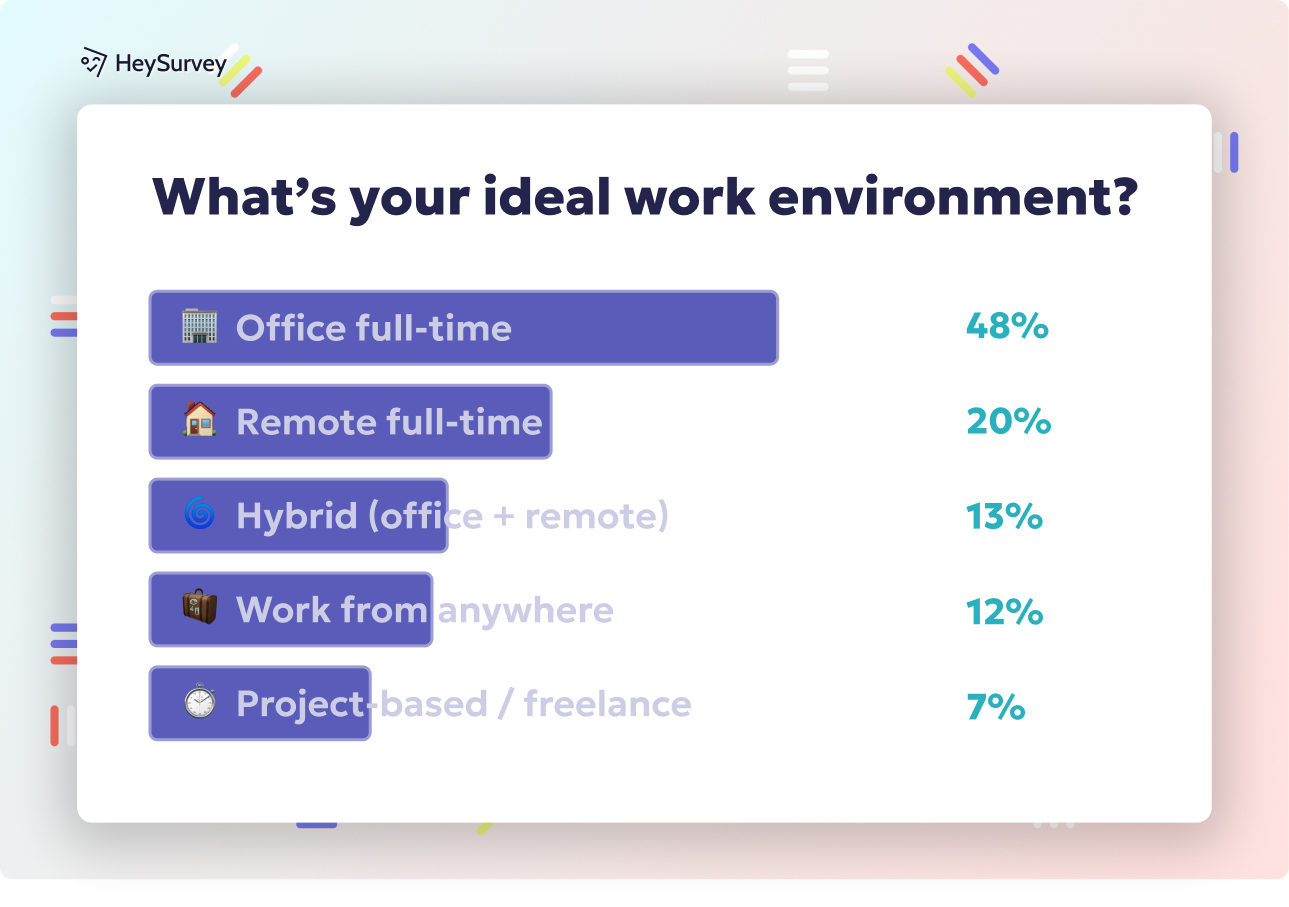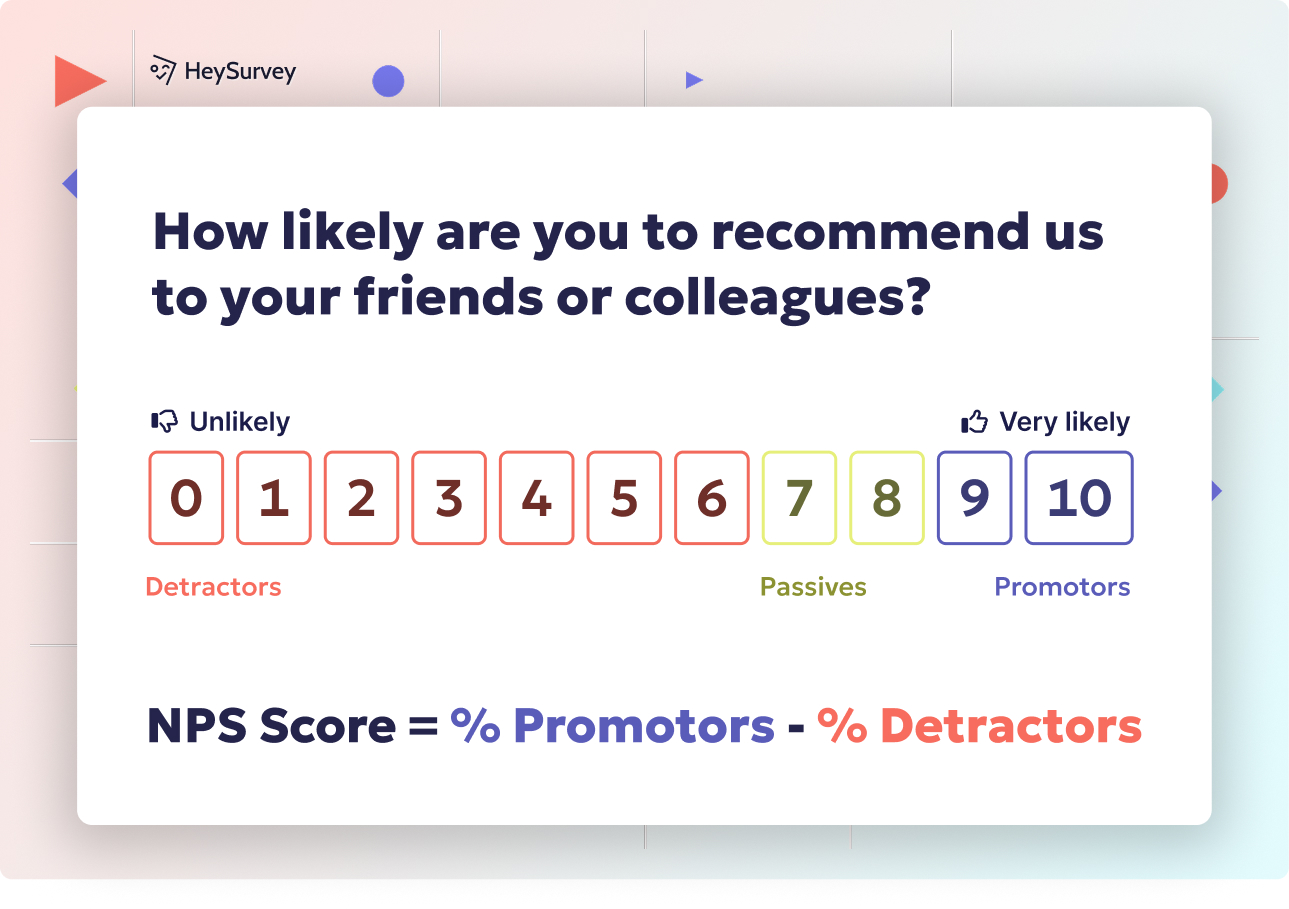25 Essential Compensation Survey Questions for Better Pay Insights
Explore 40+ expert compensation survey questions with 7 survey types covering pay satisfaction, equity, benefits, incentives, and benchmarking.
Compensation surveys are essential tools that organizations use to assess and enhance their compensation strategies. These surveys gather data on various aspects of employee compensation, including salaries, benefits, incentives, and total rewards. By collecting this information, companies can ensure they remain competitive in the market, address employee satisfaction, and make informed decisions about compensation adjustments.
Organizations typically turn to compensation-focused questionnaires during several key scenarios:
Budget Planning: To allocate resources effectively and ensure compensation packages are aligned with financial goals.
Retention Risk: To identify and address factors that may lead to employee turnover.
DEI Audits: To assess and promote diversity, equity, and inclusion within compensation practices.
Mergers and Acquisitions: To harmonize compensation structures across different entities.
Incorporating compensation survey questions into these processes allows organizations to gather valuable insights. For instance, an employee pay satisfaction survey can reveal how employees perceive their compensation, while a pay equity questionnaire can identify disparities across different demographics. Additionally, a benchmark salary survey helps compare an organization's compensation packages to industry standards, ensuring competitiveness.
Salary Satisfaction Surveys
Why & When to Use
Understanding employees' perceptions of their base salary is crucial for maintaining satisfaction and motivation. Salary satisfaction surveys are particularly useful during:
Pre-Budget Cycle: To inform compensation planning and adjustments.
Engagement Dips: To identify and address factors contributing to decreased employee engagement.
Market Shifts: To ensure compensation remains competitive in changing market conditions.
5 Sample Questions
How satisfied are you with your current base salary in relation to your responsibilities?
Do you feel your salary is competitive with similar roles at other companies?
What factor would most increase your satisfaction with your pay?
How clearly do you understand the criteria used to determine salary increases here?
On a scale of 1-10, how motivated does your current salary make you feel?
Employees' perceptions of pay fairness, influenced by internal and external comparisons, significantly impact job satisfaction. (link.springer.com)
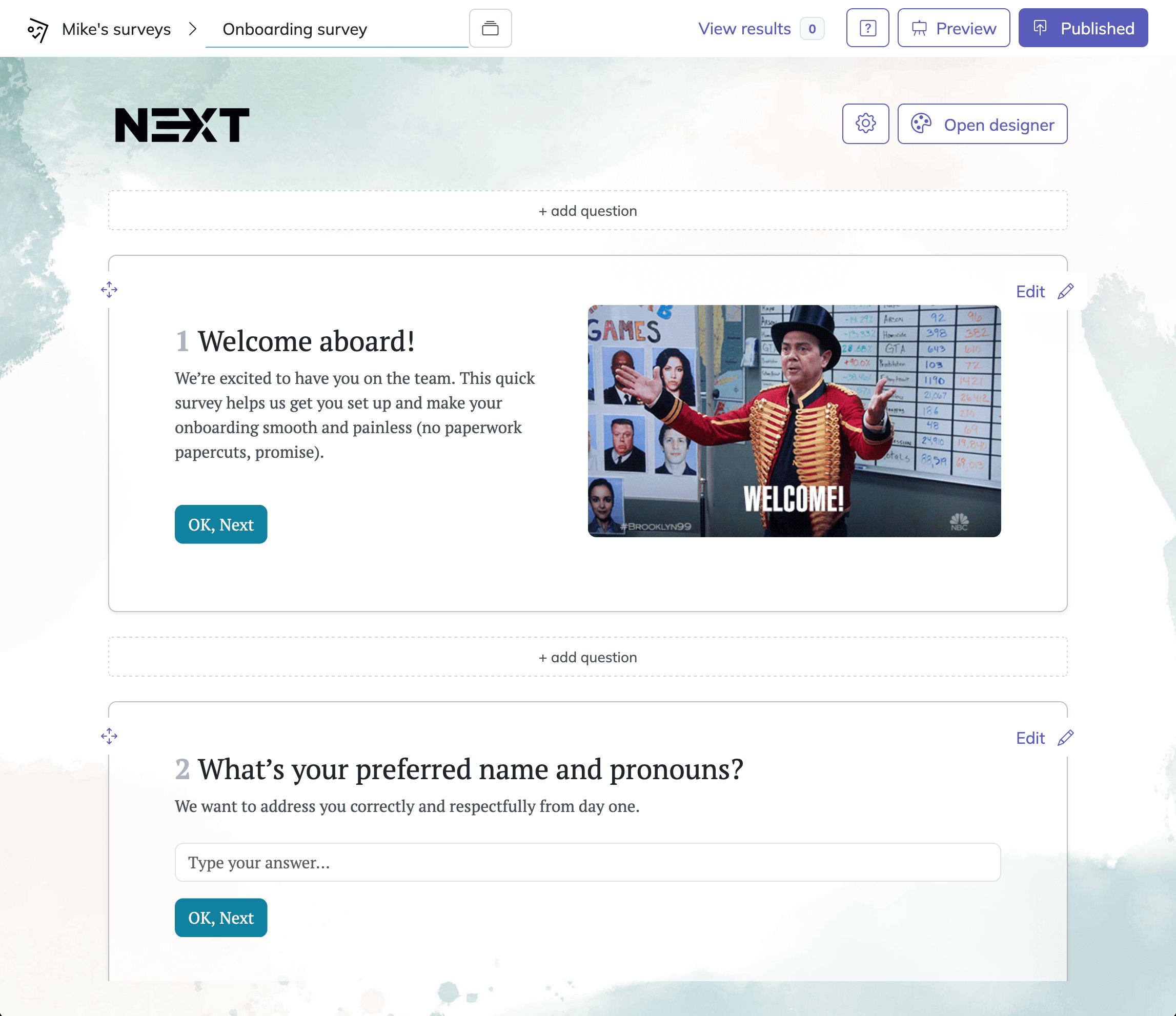
Creating your very own compensation survey with HeySurvey is easier than you think! Just follow these simple steps to get your survey up and running in no time—even if you’re totally new to this.
Step 1: Create a New Survey
Head over to HeySurvey and start by creating a new survey. You can choose from a blank canvas or start with a handy pre-built template tailored for compensation surveys, which saves loads of time. Once selected, you’ll be inside the Survey Editor, ready to customize your masterpiece.
Step 2: Add Questions
Next, click Add Question to start crafting your survey. Pick from types like multiple choice to capture perceptions on pay fairness, or scale questions to measure satisfaction levels. Easily type in your compensation survey questions, add helpful descriptions, and mark questions as required if you want to ensure everyone answers. Don’t forget, you can also add images or use branching logic to tailor the flow based on answers!
Step 3: Publish Your Survey
When it’s all set, hit Preview to see exactly how your survey looks on any device. Happy with it? Then click Publish to generate a sharable link you can send out. Note: publishing requires a HeySurvey account, so sign up if you haven’t already.
Bonus Step: Apply Branding
Want your survey to look like your own? Add your company logo and customize colors and fonts in the Designer Sidebar for a professional touch that matches your brand identity.
Bonus Step: Define Settings
Fine-tune your survey’s settings by setting start and end dates, response limits, or redirect URLs after completion—all available from the Settings Panel, making your survey even smarter.
Bonus Step: Skip into Branches
Use branching to create different paths based on responses. For example, if someone spots pay inequity, you might ask different follow-ups—making your survey more insightful and engaging.
Ready to dive in? Click the button below to open a perfectly designed compensation survey template in HeySurvey and start customizing!
Pay Equity Surveys
Why & When to Use
Pay equity surveys are essential for identifying and addressing compensation disparities related to gender, race, or other protected classes. They support DEI compliance and are particularly valuable:
After Annual Reviews: To assess and adjust compensation practices.
Before Public Pay-Equity Reporting: To ensure transparency and fairness in compensation.
5 Sample Questions
Do you believe employees performing similar work receive comparable pay, regardless of demographic factors?
Have you experienced or observed pay discrimination at this organization?
How transparent is leadership about pay-equity initiatives?
How comfortable would you feel raising a pay-equity concern?
Which DEI factor (gender, race, disability, etc.) do you feel needs the most attention in compensation practices?
Conducting pay equity audits and enhancing transparency in pay decisions significantly boost employee trust, with 91% of employees trusting their organization pays people equally when pay decisions are transparent. (shrm.org)
Benefits & Perks Surveys
Why & When to Use
Benefits and perks surveys help organizations understand the perceived value of non-cash rewards, informing benefit redesign and cost optimization. These surveys are particularly useful during:
Open Enrollment Planning: To tailor benefits offerings to employee needs.
Following Major Policy Changes: To gauge employee reactions and satisfaction.
5 Sample Questions
Which of the following benefits do you value most (health, retirement, wellness, flexibility, etc.)?
How satisfied are you with the company’s health-care contributions?
Rate the effectiveness of our remote-work stipend in supporting your productivity.
Which new perk would most improve your work-life balance?
How likely are you to stay with the company because of its benefits package?
Total Rewards Benchmarking Surveys
Why & When to Use
Total rewards benchmarking surveys provide a holistic view of employee sentiment toward salary, bonuses, benefits, and recognition. They are invaluable when:
Crafting a Comprehensive Total-Rewards Strategy: To align compensation with organizational goals.
Employer-Branding Campaigns: To attract and retain top talent.
5 Sample Questions
Taking salary, incentives, and benefits together, how competitive do you find our total rewards?
Which total-rewards component influences your engagement the most?
How clearly do you see a link between performance and total rewards?
Do our rewards support your long-term financial goals?
What single change to our total-rewards package would have the greatest positive impact on you?
High-performing companies are nearly twice as likely to have a clearly stated total rewards strategy compared to other organizations. (shrm.org)
Variable Pay & Incentive Surveys
Why & When to Use
Variable pay and incentive surveys assess employees' understanding and motivation regarding bonuses, commissions, and profit-sharing. They are particularly useful:
Mid-Fiscal Year: To evaluate the effectiveness of current incentive structures.
After Changes to Incentive Design: To measure employee reactions and adjust strategies accordingly.
5 Sample Questions
How well do you understand the metrics used to calculate your incentive pay?
Does the current incentive plan motivate you to exceed your targets?
How fair do you perceive the payout timing and frequency?
What portion of your total compensation would you like to see as variable pay?
How confident are you that incentives are distributed equitably across teams?
Executive Compensation Surveys
Why & When to Use
Executive compensation surveys gather feedback from the board or leadership on the competitiveness of C-suite packages, including salary, long-term incentives, and perks. They are best conducted:
Before Proxy Statement Preparation: To ensure compliance and transparency.
During Succession Planning: To attract and retain top executive talent.
5 Sample Questions
How aligned is executive compensation with company performance metrics?
How appropriate is the balance between fixed pay and long-term incentives?
Does current executive pay support retention of top leadership talent?
How transparent is the rationale behind executive compensation decisions?
What changes would better link executive rewards to shareholder value?
Market Pricing & Benchmark Surveys
Why & When to Use
Market pricing and benchmark surveys compare internal pay ranges to external labor-market data, justifying compensation adjustments. They are ideal during:
Annual Compensation Reviews: To ensure competitiveness and fairness.
Expansion into New Geographies: To align compensation with local market standards.
5 Sample Questions
How confident are you that our pay ranges reflect current market rates?
Have you researched external salary data for your role in the past year?
How important is geographic pay differentiation to you?
Which competitors do you view as benchmarks for compensation?
What premium would you expect for specialized skills the market demands?
Best Practices, Dos & Don’ts for Compensation Surveys
Dos:
Segment Audiences: Tailor surveys to different employee groups for more accurate insights.
Guarantee Anonymity: Ensure confidentiality to encourage honest feedback.
Pilot Test Questions: Test surveys to identify and correct issues before full deployment.
Tie Findings to Actionable Pay Strategies: Use survey results to inform compensation decisions.
Communicate Outcomes: Share survey results and subsequent actions with employees to build trust.
Don’ts:
Overload Surveys: Keep surveys concise to maintain engagement.
Use Leading Language: Avoid biased questions that may skew results.
Ignore Demographic Cross-Tab Analysis: Analyze data across different demographics to identify disparities.
Delay Follow-Up: Act promptly on survey findings to demonstrate responsiveness.
Violate Pay-Transparency Laws: Ensure compliance with legal requirements regarding compensation transparency.
By adhering to these best practices and utilizing the appropriate survey types, organizations can gain valuable insights into their compensation structures, leading to more informed decisions and a more satisfied workforce.
Related Employee Survey Surveys
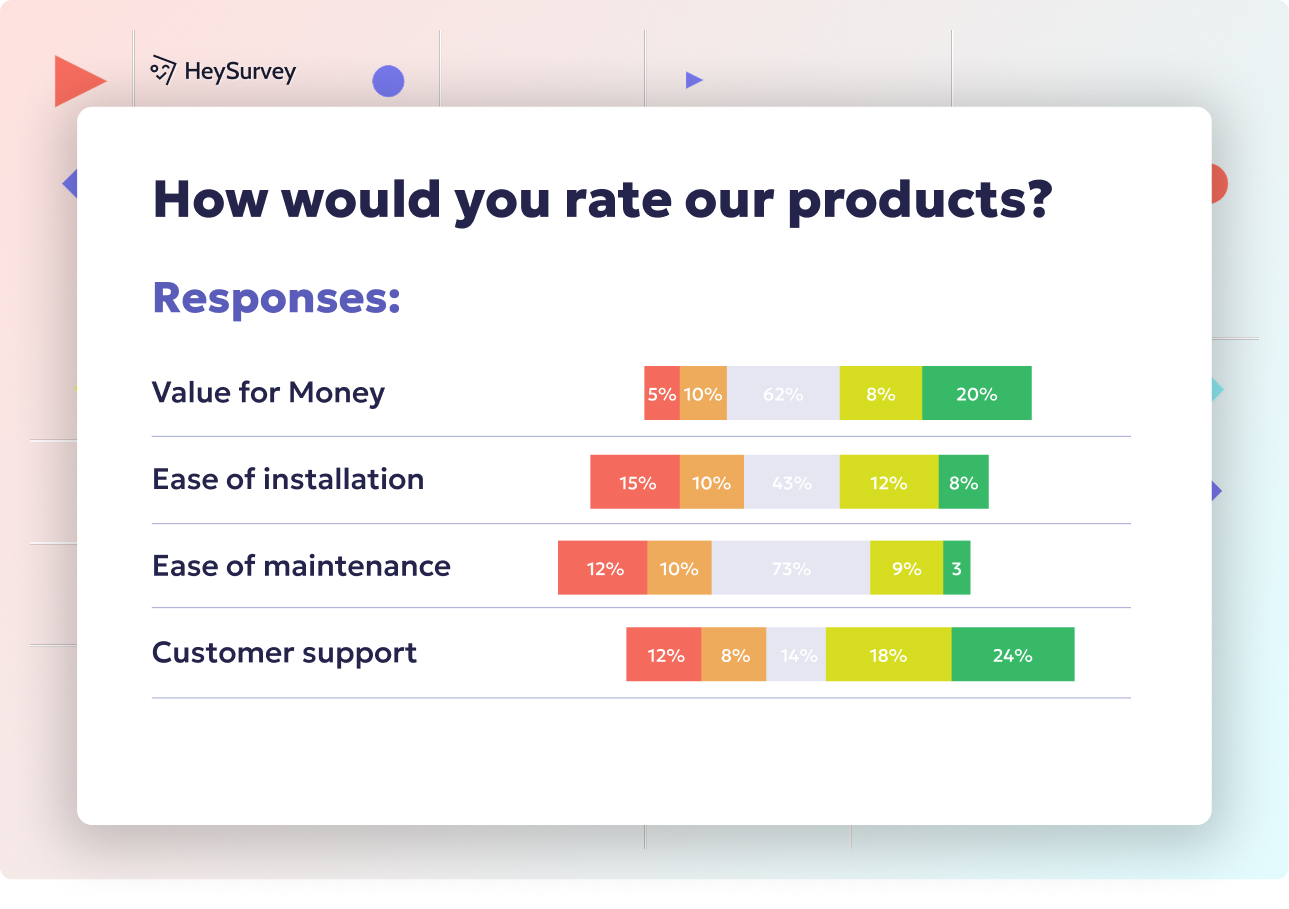
29 Essential Post Mortem Survey Questions for Project Success
Discover 25+ essential post mortem survey questions to improve projects, boost team morale, and d...
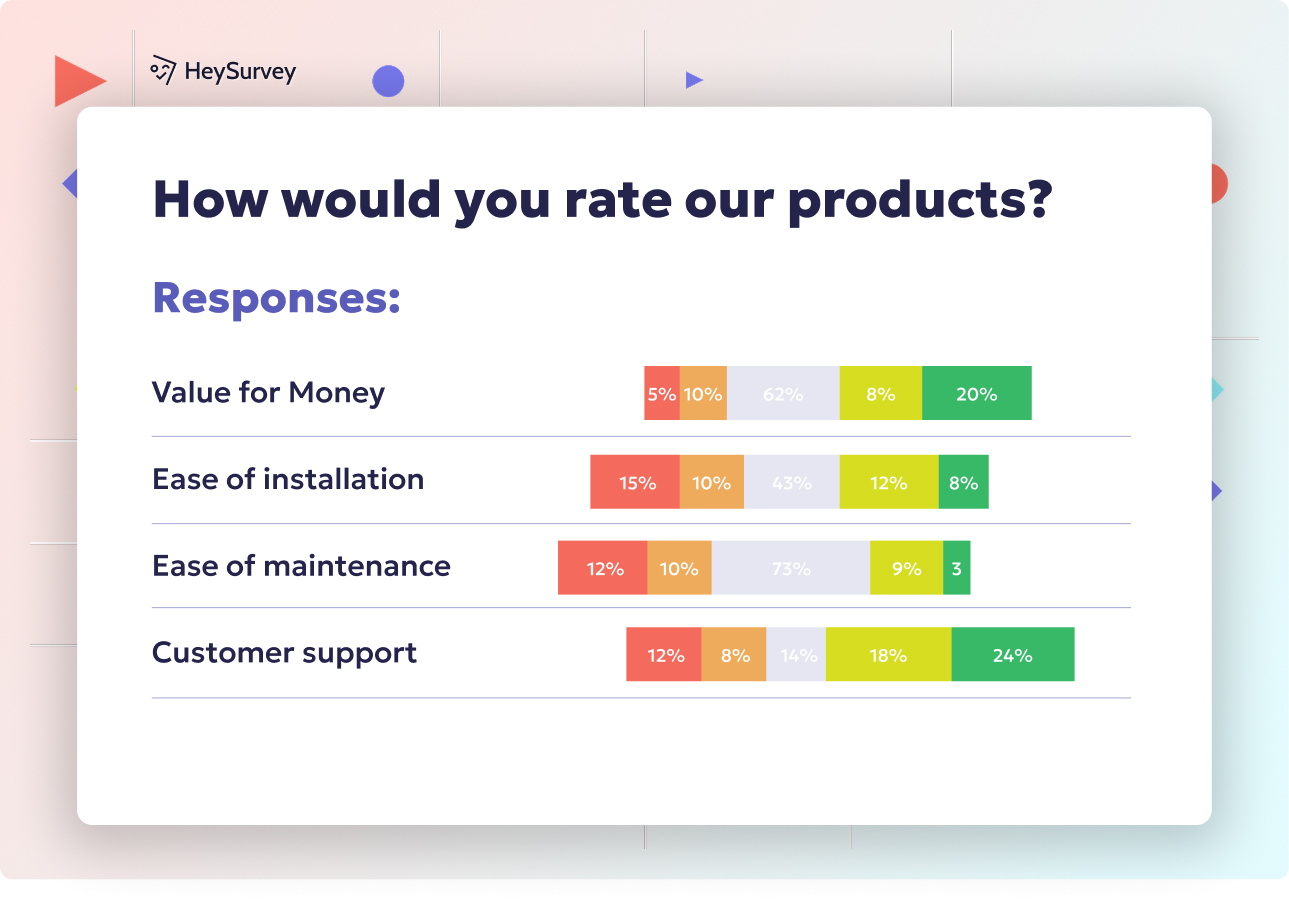
31 Change Readiness Survey Questions to Boost Your Success
Discover 25+ sample change readiness survey questions to assess attitudes, barriers, and confiden...

31 Retreat Survey Questions to Collect Actionable Feedback
Discover 26 essential retreat survey questions to gather actionable feedback before, during, and ...
